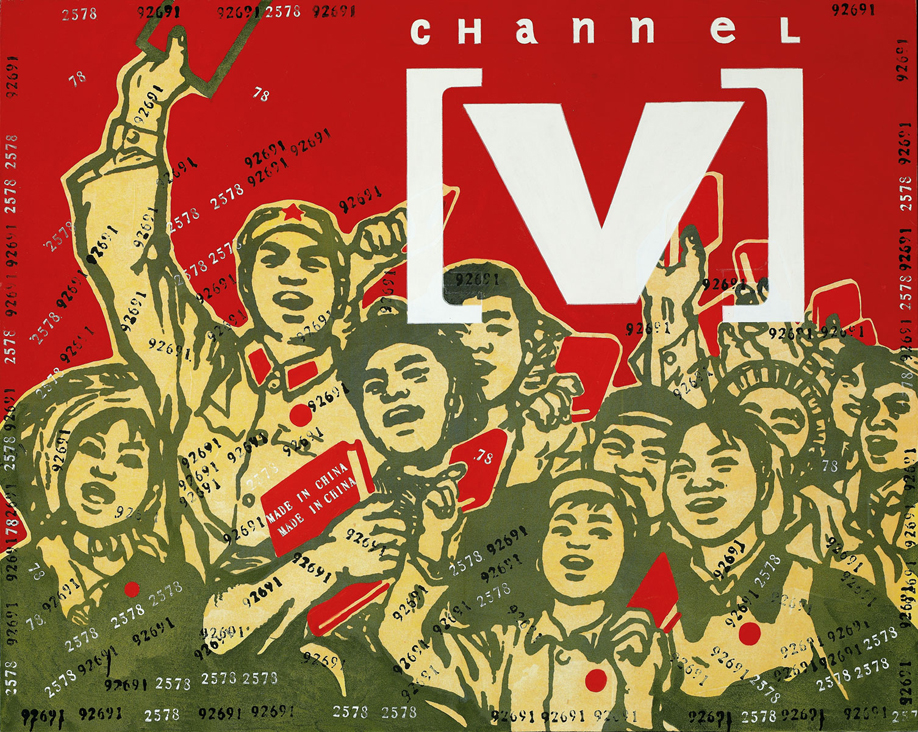Wang created his "Great Criticism" series in the late 1990s. In the series, Wang is raising questions about dominance and icon-worship, both in Cultural Revolution propaganda posters and Western Brands. Taking iconic images of soldiers, laborers and peasants, Wang provokes us to look more closely at what we are seeing, through juxtaposing these figures with some of the world's most recognizable brand names. The image we are left with is emblematic of China's contemporary struggle, grappling with its past while figuring out its future.
"Great Criticism Series – Channel V" is dominated by a large group of young proletarian students, soldiers, workers and peasants, the heroes of the revolution. Dressed in traditional revolutionary garb, they are massed together enthusiastically waving their Little Red Books. They are ecstatically shouting out at a rally, and their smiling, cheerful faces seem totally benign. The speaker at the rally is off stage, and the large V of the brand 'Channel V' seems to be the center of focus of the teeming masses. The criticism seems to be implicit one corrupt and empty system is in danger of being replaced by another.
Wang paints in the 'flat style' of Pop Art, and employs the same monochromatic colors to great effect. The red background is both suggestive of all things communist as well as a much deeper meaning of blood and blood spilt. The figures are drawn in sharp monochromatic outlines and they are all wearing the same yellowish uniforms with Mao collars and red badges. The concept of uniformity and lack of individuality is further enhanced by the stenciled repeated numbers all over the canvas.
Wang's critique of the legacy of the communist system is profound and deep. He grew up under the Cultural Revolution and knew at first hand the power of an omnipotent ruler. The mass hysteria of that time as shown in the faces of the crowd is about to replaced by mass adulation of Western brands.
